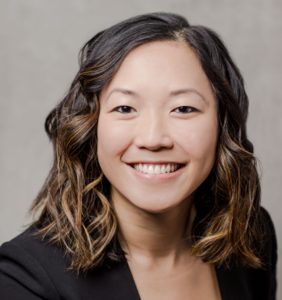Welcome to the second series of GEN Edge’s Front Row, in which we visit the cutting edge of AI in Drug Discovery and Development.
This three-part series includes discussions on new artificial intelligence (AI) platforms and their application in cancer, neurodegenerative diseases, non-alcoholic steatohepatitis (NASH), and rare diseases.
The first series of Front Row focused on Alzheimer’s disease. Here we meet a trio of pathbreakers at the forefront of research in AI for drug discovery and development. In parts two and three of this series, host Malorye Branca interviews Andy Beck, CEO of Path AI, and Daphne Koller, CEO of insitro.

Here in Part One, Malorye interviews Alice Zhang, CEO and founder of Verge Genomics. The Framework for this conversation is Using AI and Human Tissue to Break New Ground in Neuroscience.
As an MD/PhD candidate at Stanford, Zhang was inspired to leave early for industry. She realized one of the biggest bottlenecks in drug discovery and development is the drawbacks of animal and cell models and thought she could sidestep those by using AI and human tissue samples—lots of them. The key would be to get a better picture of what causes disease and what might be the best approaches to treat it.
[ Click the lower right icon to view fullscreen with transcript ^ ]
Verge Genomics now has more than 6,800 tissue samples already and that collection is growing every day. The company has partnered with some two dozen universities and brain banks to keep the samples flowing. Verge says it has built an end-to-end, AI-driven drug discovery platform that includes one of the field’s largest proprietary genomic datasets from human brain tissue.”
In July 2021, the company announced a $706-million partnership with Lilly to develop new treatments for amyotrophic lateral sclerosis (ALS). Last December, it closed an oversubscribed $98-million equity financing.
Particularly exciting for Verge this year is that the company is aiming to launch a clinical trial of its first proprietary drug candidate, which addresses ALS and is based on a target the company found using its own platform. Another goal is to create gene therapies that address a wider range of patients.

